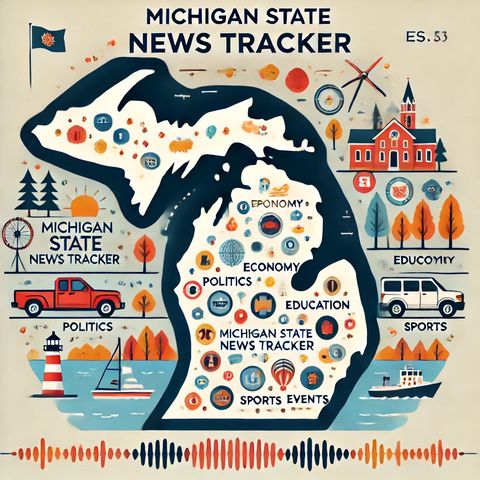5 NOV 2024 · Michigan, a Midwestern state of the United States, contains not only a rich mix of cultural and natural attractions but also a vibrant political and social dynamic. The state is characterized by its unique geography, bounded by four of the five Great Lakes, providing it with the longest freshwater coastline of any political subdivision in the world.
Economically, Michigan historically thrived through its automotive industry. Detroit, its largest city, earned the nickname "Motor City" as it became the automotive capital of the world in the early 20th century. This industry played a crucial role during World War II as factories were converted to produce war material, earning Detroit another nickname, "Arsenal of Democracy." However, the state faced significant economic challenges when the industry suffered a decline, leading to adverse impacts on labor and production sectors.
The state government has been actively promoting policies to revive the economy. Efforts have included diversifying the economy through the advancement of information technology, health sciences, and green energy production, such as wind turbines and advanced battery production, aligning with broader national shifts towards sustainable energy.
Politically, Michigan is known for its swing state status, with electoral outcomes reflecting a balanced spread across major political parties. Its diverse electorate includes urban populations in cities like Detroit and Grand Rapids, rural communities in the Upper Peninsula, and affluent suburbs such as those in Oakland County. This diversity makes Michigan a significant battleground state during presidential elections.
Culturally, Michigan offers a rich array of experiences, from the Detroit Institute of Arts, recognized for its vast holdings of African American art, to the vibrant music scenes that include Motown and modern genres. The state's demographic landscape is varied, with a significant representation of African American communities, a growing Latino population, and numerous other ethnic groups contributing to a rich multicultural tapestry.
Environmental issues have also been a significant concern in Michigan, notably the water crisis in Flint, where lead contamination raised national attention about the state of infrastructure and environmental justice. This incident brought about scrutiny on water quality issues nationwide and prompted state and federal authorities to reassess the management of water resources and public health safeguards.
In terms of education, institutions like the University of Michigan and Michigan State University are pivotal in the state's higher education landscape, contributing to research and development in multiple disciplines and boosting local economies.
Michigan’s geographical features offer abundant recreational opportunities, including over 3,000 miles of coastline conducive to water sports, numerous state and national parks, and a climate that supports winter sports, making tourism a significant part of its economic landscape.
In conclusion, Michigan exemplifies a state with a blend of industrial heritage, political significance, environmental diversity, and cultural richness, reflecting broader American themes of innovation, resilience, and community diversity.


